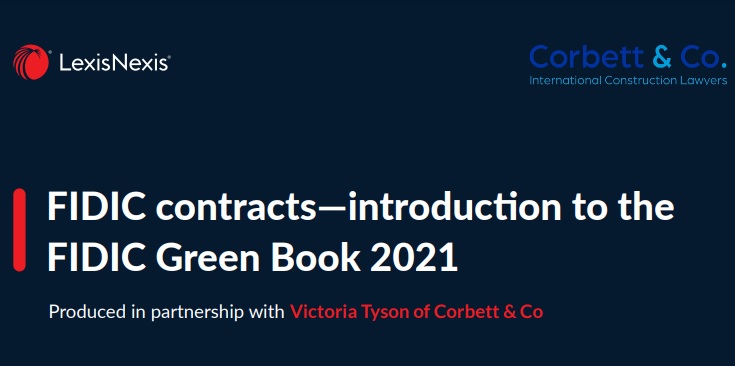No Oral Modification Clauses Mean What They Say
Written by Steve Mangan |
May 21, 2019
Will an oral agreement override a written one that expressly prohibits oral modification? No. The UK Supreme Court in Rock Advertising Ltd – v – MWB Business Exchange Centres Ltd[1] brings welcome clarification to the English common law on “no oral modification” (NOM) clauses. The courts will now uphold them.
Unless very particular circumstances are involved, the only means to vary a contract with a NOM clause is by doing so in writing. The Court’s judgment is interesting for its divergent views on the philosophy of what it means to have freedom of contract. But with conceptual objections now swept aside, the construction industry will take note of this judgment given widespread use of NOM clauses in bespoke construction contracts.
The Concept of Party Autonomy
Resonating through common law jurisprudence is the “celebrated dictum” of Cardozo J on the subject of freedom of contract. One hundred years ago he stated in the New York Court of Appeals:
“Those who make a contract, may unmake it. The clause which forbids a change, may be changed like any other. The prohibition of oral waiver, may itself be waived… What is excluded by one act, is restored by another. You may put it out by the door, it is back through the window. Whenever two men contract, no limitation self-imposed can destroy their power to contract again…” [2]
In recent years a small number of English Court of Appeal decisions have considered the thorny question of whether a contract could be varied orally or by conduct even though it contained a NOM clause. Although the results have not been uniform, the cases culminated in a 2016 Court of Appeal judgment where Moore-Bick LJ stated:
“The governing principle in my view, is that of party autonomy. The principle of freedom of contract entitles parties to agree whatever terms they choose, subject to certain limits imposed by public policy. The parties are therefore free to include terms regulating the manner in which the contract can be varied, but just as they can create obligations at will, so also can they discharge or vary them, at any rate where to do so would not affect the rights to third parties.” [3]
And there the matter largely stood until the UK Supreme Court received the appeal in the case of Rock Advertising Ltd – v – MWB Business Exchange Centres Ltd [2018].
Rock v MWB
The facts were that in 2011, Rock Advertising Ltd (“Rock”) agreed a 12-month licence with MWB Business Exchange Centres Ltd (“MWB”) for use of office space. The fee was £3,500/month for the first three months and £4,333/month thereafter. Clause 7.6 of the licence stated:
“This Licence sets out all of the terms as agreed between MWB and Licensee. No other representations or terms shall apply or form part of this Licence. All variations to this Licence must be agreed, set out in writing and signed on behalf of both parties before they take effect.”
Rock immediately fell behind in its payments and in late February 2012 owed £12,000. It proposed to MWB’s credit controller a revised schedule of payments which consisted of deferring fees for part of February and March 2012 and spreading the balance of its existing debt over the remainder of the licence term. The parties fell into dispute over whether MWB’s credit controller had accepted the proposal. She denied this and claimed to have taken it to her superior who rejected it. There would appear not to have been any discussion of the NOM clause 7.6, almost certainly because neither party representative knew of its existence. On 30 March 2012, MWB locked Rock out of the premises, terminated the licence and sued for arrears. Rock counterclaimed damages for wrongful exclusion.
The court at first instance found that there was an agreement between the parties but that it was ineffective because it was not recorded in writing. The Court of Appeal found that not only was there an oral agreement, it amounted to an agreement to dispense with the restriction in clause 7.6.
A New Approach by Majority Decision of the Supreme Court
The Supreme Court however disagreed. Lord Sumption gave the majority judgment and held, among other things, that the agreed variation was not valid due to the absence of writing and signatures prescribed by clause 7.6. He considered that the law should give effect to a contractual provision requiring specified formalities to be observed for a variation of the contract. This approach was, he said, entirely consistent with certain statutory exceptions to the English common law. Contracts for the sale of land, for example, are required to be in writing. There is no principled reason why the parties could not adopt the same principle by agreement. It made commercial sense to do so and NOM clauses are respected in a number of other common law jurisdictions, just as they are in contractual codes widely applied internationally such as UNIDROIT. Oral variations will therefore be invalid where the parties have previously agreed that any variations must be in writing.
For Lord Sumption it was a fallacy to proclaim that the fundamental concept of party autonomy meant that the parties could not validly bind themselves as to how future changes in their legal relations could be achieved, no matter how clearly they expressed their intention to do so. He said:
“Party autonomy operates up to the point when the contract is made, but thereafter only to the extent that the contract allows. Nearly all contracts bind the parties to some course of action, and to that extent restrict their autonomy. The real offence against party autonomy is the suggestions that they cannot bind themselves as to the form of any variation, even if that is what they have agreed.”
Lord Briggs’ Dissenting View
Lord Briggs gave a dissenting judgment, agreeing with the outcome of Lord Sumption’s judgment based on the facts of the case but arriving there by a different, narrower and more cautious route. His starting point was that NOM clauses are indeed frequently encountered in commercial agreements and in many different jurisdictions and the common law should in principle uphold what had been agreed by the parties to a contract. However, there was still that valid conceptual objection espoused by Cardozo J.
Lord Briggs squared this particular circle by drawing a distinction between an oral variation to the substantive terms of the contract and an oral variation of the NOM clause itself. He required the NOM clause to be the subject of express amendment if the oral amendment of the substantive terms of the contract were to be allowed to stand. He stated:
“The NOM clause will remain in force until they both (or all) agree to do away with it. In particular it will deprive any oral terms for a variation of the substance of their obligations of any immediately binding force, unless and until they are reduced to writing, or the NOM clause is itself removed or suspended by agreement. That fully reflects the autonomy of parties to bind themselves as to their future conduct, while preserving their autonomy to agree to release themselves from that inhibition.
“What is to my mind conceptually impossible is for the parties to a contract to impose upon themselves such a scheme, but not to be free, by unanimous further agreement, to vary or abandon it by any method, whether writing, spoken words or conduct, permitted by the general law.”
So Lord Briggs considered that oral modification of the terms of a written contract was indeed possible provided that the parties turned their attention to the impediment presented by the NOM clause and expressly agreed to deal with that. That express agreement could be oral. However, it could not readily be implied, although he conceded that there might be circumstances where it could be implied. On the facts of Rock v MWB, the outcome was in any event the same because the party representatives did not address at all the existence of the NOM clause.
For Lord Briggs, his alternative approach preserved the commercial benefits of certainty. Problems of alleged agreements and abusive litigation were also thereby minimised. Furthermore, his approach, he thought, represented an incremental development of the English common law, rather than a “clean break” with the current consensus across several international, common law jurisdictions.
Lord Briggs was however alone in his dissension. His views have found some support in published commentaries but the law on the subject is now that held by the majority of the Supreme Court.
The Court avoided dealing in detail with the role that an estoppel might play in overruling a NOM clause because the facts of the case did not require them to explore that question. However, in circumstances where one party reasonably relies on the words or conduct of another that unequivocally represents that an oral variation was valid despite a NOM clause, the court indicated that the doctrine of estoppel may still be available to prevent an injustice.
The last word must however go to Lord Sumption:
“The law should and does give effect to a contractual provision requiring specified formalities to be observed for a variation… There is no conceptual inconsistency between a general rule allowing contracts to be made informally and a specific rule that effect will be given to a contract requiring writing for a variation to be valid.”
Comment
This case has considerable implications for construction contracts governed by English law where they contain NOM clauses or require that amendments comply with specific formalities. There are very understandable reasons for this. Projects can be fast moving, leading to pragmatic responses to developments at site or elsewhere involving any number of participants. All of this provides fertile ground for disputes and managers of the parties will generally wish to restrict the scope for unauthorised oral agreements to a written contract. They will derive comfort from the judgment in Rock v MWB. Arguments that a NOM clause was overridden by an ad hoc oral agreement are now likely to fail.
1] [2018] UKSC 24 (16 May 2018)
[2] Alfred C Beatty v Guggenheim Exploration Company (1919) 225 NY 380
[3] Globe Motors Inc and others v TRW Lucas Varity Electric Steering Limited and another [2016] EWCA Civ 396 (20 April 2016)


